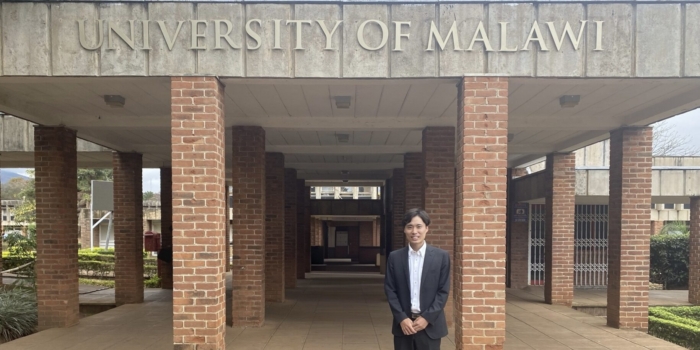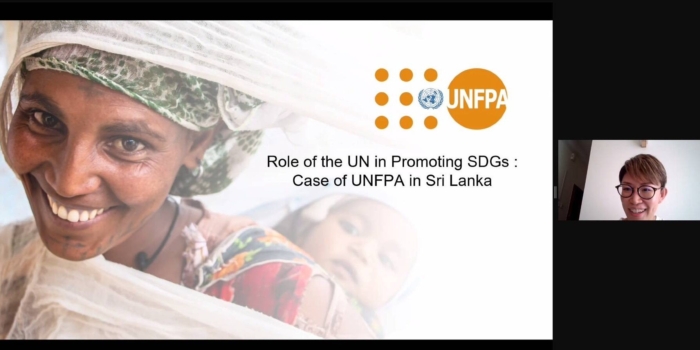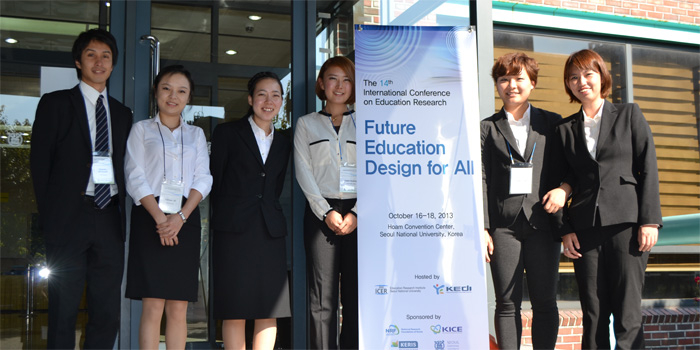I conducted advanced overseas research in Malawi, Africa, from August 1 to October 31, 2024, to collect primary data for my doctoral dissertation. The purpose of this study is to examine how women are involved in intrahousehold decision-making regarding children’s primary education, with a focus on post-marital residence patterns in Malawi’s matrilineal society. I primarily carried out the following research activities at the University of Malawi, Centre for Educational Research and Training: (1) preparation for fieldwork, (2) visiting households around public primary schools in rural areas to conduct interviews and questionnaire surveys targeting married women, and (3) preliminary analysis of the primary data collected during the fieldwork.
As part of the first research activity, I prepared for fieldwork in Malawi by presenting the research outline and fieldwork plan to Dr. Dorothy Nkhata, Director of the Centre; Dr. Elezabeth Meke, Senior Research Fellow; Ms. Esme Kadzamira; and Ms. Lizzie Chiwaula. During this process, I revised the research plan and conducted a literature review based on the feedback I received. Additionally, during the ethical review process at the University of Malawi, I received valuable comments and advice from researchers well-versed in the Malawian context. This provided an important opportunity to further refine the content of my research.
 In the second activity, I conducted fieldwork to collect primary data. Specifically, I carried out surveys targeting 36 households around each of four public primary schools (a total of 12 schools) in rural areas of Zomba District and Blantyre District in the Southern Region, as well as Lilongwe District in the Central Region of Malawi, totaling 108 households. The survey included key informant interviews with 12 women familiar with their respective village communities, individual interviews and questionnaire surveys with 108 married women, and participant observation in each household. Additionally, I conducted a literature review using government documents, reports from aid agencies, and statistical data.
In the second activity, I conducted fieldwork to collect primary data. Specifically, I carried out surveys targeting 36 households around each of four public primary schools (a total of 12 schools) in rural areas of Zomba District and Blantyre District in the Southern Region, as well as Lilongwe District in the Central Region of Malawi, totaling 108 households. The survey included key informant interviews with 12 women familiar with their respective village communities, individual interviews and questionnaire surveys with 108 married women, and participant observation in each household. Additionally, I conducted a literature review using government documents, reports from aid agencies, and statistical data.
In the third activity, I conducted a preliminary qualitative analysis based on the collected primary data. Specifically, I transcribed and translated audio recordings from individual interviews and questionnaire responses, then performed coding and conceptualization of the qualitative data. During the qualitative data analysis, I utilized a case code matrix to conduct continuous comparisons between data and identify any missing data, analyzing the characteristics of household decision-making processes and their related factors. Throughout the analysis, I carefully ensured that the findings were appropriate for the Malawian context by receiving valuable advice from staff members at the Centre.
The preliminary analysis revealed that the stereotypical notion of the husband dominating household decision-making, as seen in patrilineal societies, was not observed. Instead, when disagreements arose within households, decisions were made through negotiation. Additionally, the extent of women’s involvement in decision-making regarding children’s access to primary education varied depending on the residence patterns, such as matrilocal, patrilocal, or neolocal living arrangements. However, it was also found that in household decision-making related to children’s educational opportunities, the opinions of the paternal uncle—often the eldest brother of the father—tended to carry significant weight over those of the husband. This phenomenon may stem from the Malawian marital tradition known as Ankhoswes, which requires the uncle’s approval for marriage. This aspect presents an interesting contrast to the typical discussions of patrilineal societies, where the husband is considered the head of the household. Moving forward, I aim to analyze the relationships between these factors and conduct a more detailed examination of specific decision-making processes as I continue my research.
Through this advanced overseas research, I gained numerous valuable insights and experiences. I am confident that the network I built with various education stakeholders in Malawi, the country of study, will serve as a crucial asset for my future research endeavors. First, I was able to establish relationships with faculty members at the University of Malawi’s Faculty of Education. In addition to interacting with the staff at my host institution, the Centre for Educational Research and Training, I also engaged with faculty and researchers specializing in diverse fields such as education administration, sociology of education, and subject-specific pedagogy. Second, I developed connections with officials from the Malawi Ministry of Education, local administrative authorities, and regional education officers. These connections enabled me to access critical information sources, such as policy documents and education statistics, which would have been difficult to obtain otherwise. Moreover, the trust established during my visit facilitated the smooth coordination of essential procedures for conducting fieldwork, such as obtaining permission to visit primary schools and targeted rural communities, as well as scheduling interviews. I strongly believe these accomplishments were made possible because of my visit as part of this advanced overseas research.
Furthermore, conducting research based on the current state of educational development in the target country allowed me to gain a new perspective on the social significance and contributions this research could have for the country, in addition to its academic value. During the master’s program, I was unable to conduct fieldwork due to travel restrictions caused by the COVID-19 pandemic. However, through this advanced overseas research, I was able to visit Malawi and collect primary data through interviews and questionnaires. As a result, I was able to align the factual data with on-the-ground challenges and address the research questions in a way that takes Malawi’s cultural norms into account. These achievements underscore the significant contribution that this advanced overseas research has made to the depth and substance of my doctoral dissertation. I am confident that this experience will be profoundly meaningful for my future research endeavors as well.
In closing, I would like to express my heartfelt gratitude to my academic advisor, Professor Keiichi Ogawa, for providing me with this invaluable opportunity. I am also deeply thankful to Dr. Dorothy Nkhata, Dr. Elizabeth Meke, Ms. Esme Kadzamira, Ms. Lizzie Chiwaula, and the team at the Centre for Educational Research and Training at the University of Malawi for hosting my advanced overseas research. I am equally grateful to the Japan Society for the Promotion of Science for supporting this research through the Overseas Challenge Program for Young Researchers. In addition, I would also like to extend my sincere appreciation to Mrs. Geresomo, Director of Planning at the Ministry of Education in Malawi, and Mr. Namfuko, Deputy Director at the Education Management Information System (EMIS) Center, for their assistance in coordinating fieldwork and providing educational materials for the entire country. Furthermore, I am deeply grateful to the district commissioners, education office directors, village chiefs, and community members for their support in organizing visits to rural areas, as well as to Ms. Mwakanema, who served as my interpreter during the surveys.

Authored by Yudai Ishii (Doctoral Student)
Related








